If you’re in the market for a new oven or (like me) you’ve inherited one from a recent house move, chances are you’ll need to find out what type of fuel powers it.
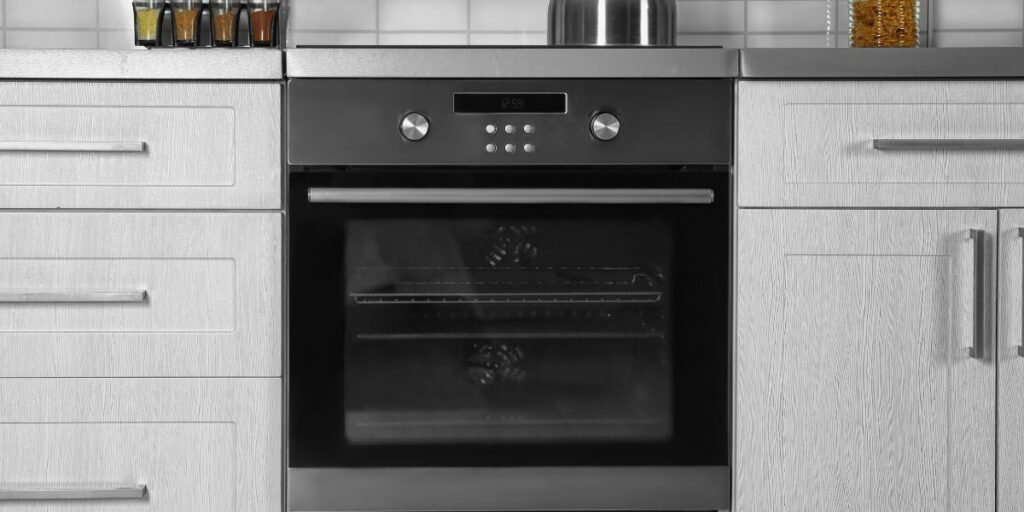
Well, lucky for you we’ve got lots of advice on how to tell the difference between gas and electric ovens. Let’s get cooking… I mean started!
How To Tell If An Oven Is Gas Or Electric
To find out if your oven is gas or electric there are some key things to look out for. Take a look inside your oven when it’s on (safely). Gas ovens are powered by a flame, whereas electric ovens use heated coils which turn red when they’re hot.
Here are some other top tips for figuring out your oven’s fuel source:
1. Take a peek for a pilot light
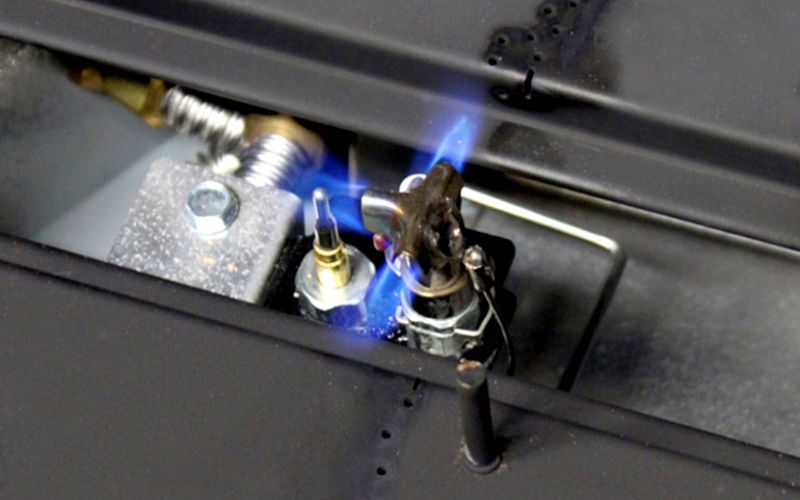
Some gas ovens have distinctive features that set them apart from electric models. One of the things to look for on older ovens is a pilot light.
The pilot light is a small flame that’s permanently burning. It serves as an ignition flame for your oven and it usually sits at the front of the cavity, although some models may have it at the back or underneath the oven in a broiler drawer.
You may need to get on your hands and knees or crouch down to find it but it should be fairly easy to spot once you start looking!
2. Valve, outlet or both?
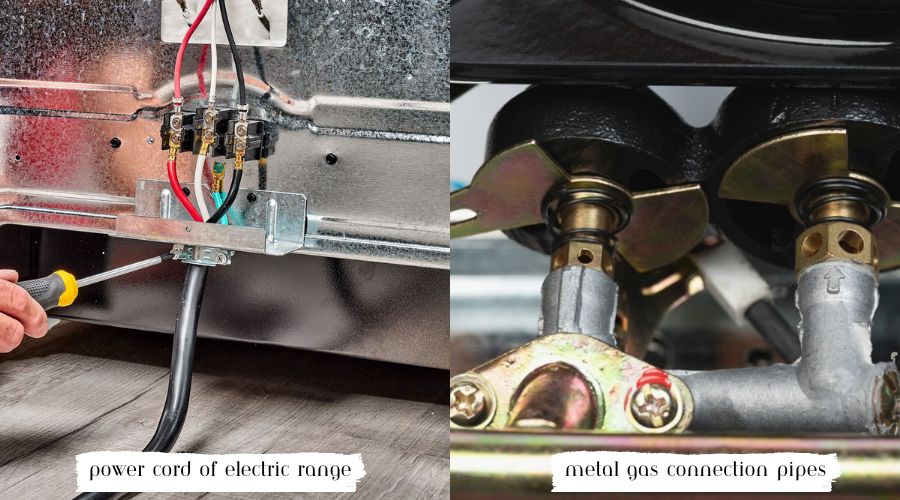
If you want to know whether you’re cooking on gas or electric, take a look around the back of your oven. If it’s electric, you’ll find a power outlet. If it’s a gas model, you’ll find a power outlet and a valve which connects your appliance to the gas supply in your home.
3. Listen up
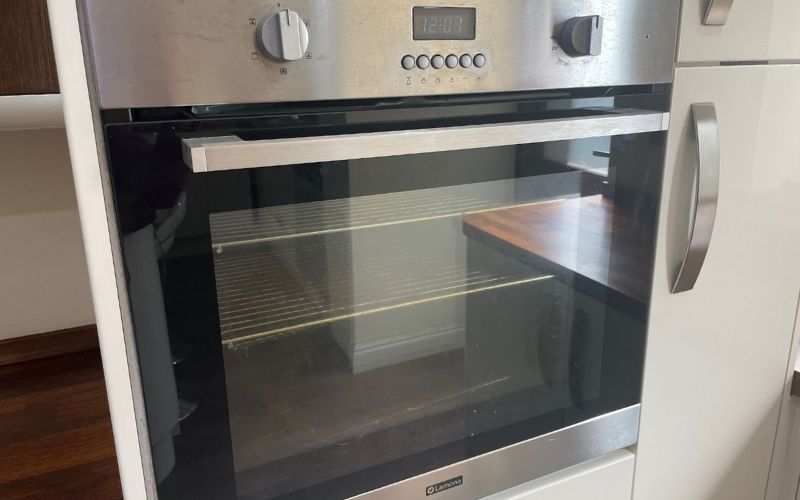
Keep your ears to the ground or at least turn the radio or TV off when you switch your oven on. If you have a gas oven, you might be able to hear a sudden clicking, whooshing or poofing sound when you turn the dial.
Don’t panic though, these are all pretty normal sounds, it’s just the ignition lighting the flame and the gas moving through the pipes. Phew!
Can an oven be both gas and electric?
An oven cannot be both gas and electric, it can only have one fuel type. However, you can get dual fuel ranges. Dual fuel ranges combine the best of both worlds because they tend to have gas cooktops with large and multiple electric ovens underneath.
There are loads of benefits to having a dual fuel range, the first one being the amount of space and flexibility they give you. Dual fuel ranges usually have lots of available gas burners on the cooktop for you to whip up a storm with. Whether you’re making a tasty sauce for supper or frying some eggs, you can do both and still have room for more.
With the cooktops being gas you can take advantage of instant heat, helping you stay on top of dinner-time prep. And with large and often multiple electric ovens at your disposal, your food will be more evenly cooked. Bon appetit!
If you’re interested in this option, check out this dual-fuel range on Amazon. It’s got a modern stainless steel finish, five gas burners, two electric ovens and plenty of great reviews!
Verona Dual Fuel Range with Double Oven
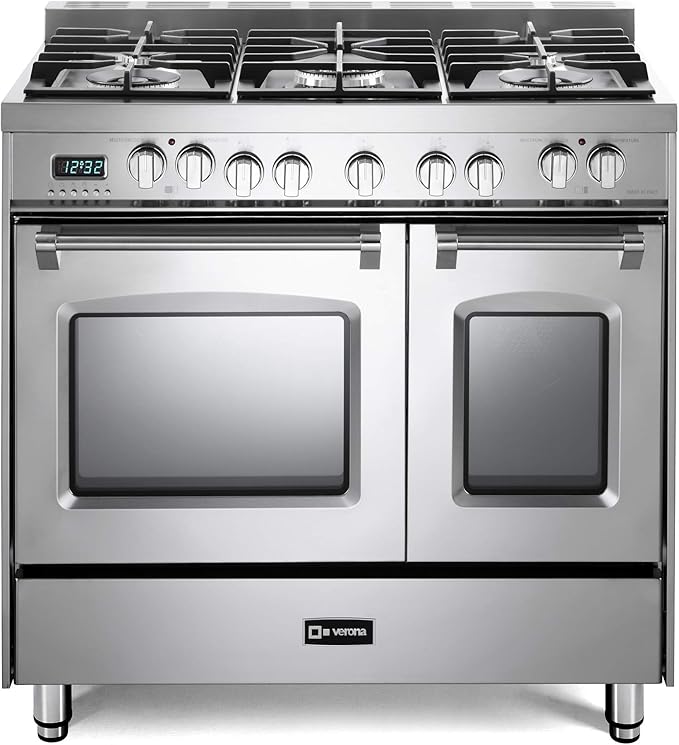
- Durable range
- High corrosion resistance
- 2-year manufacturer warranty
So, while there might not be any super duper transformer-type ovens that can instantly flit from one fuel source to another, there are certainly some mightily impressive alternatives that can offer other benefits.
Does a gas oven need electricity to ignite?
Most modern gas ovens these days need electricity to ignite the flame instead of a pilot light. When you turn the oven on, the gas valve automatically opens and an electrical current flows through a heating element (glow bar). When it gets very hot (which is almost instantly) it sets the gas alight.
Modern gas ovens also need a certain amount of electricity to power things like lights, touchscreens (if it’s super fancy), convection fans and smart features such as WiFI (if it’s super duper fancy)!
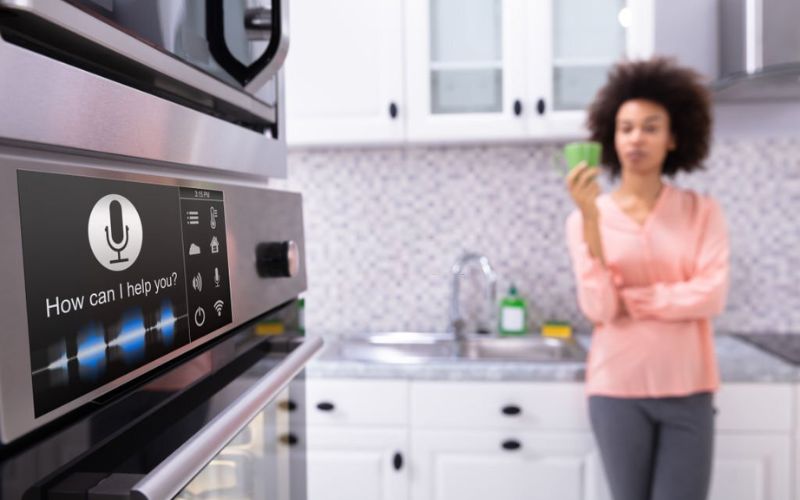
Can you manually light a gas oven with electric ignition?
You can’t manually light a gas oven if it has an electric ignition, which means you wouldn’t be able to use it during a power cut. Gas ovens with an electric ignition need electricity to open the gas valve. Without an open gas valve, you can’t light the gas to ignite a flame.
Our best advice is to always have a flashlight handy so that you can find those all-important take-out menus, pronto!
What’s better – A gas or electric oven?
Okay, so let’s get down to business and figure out which oven type will make your mealtimes a masterpiece.
Electric ovens – pros
Control and precision
Electric ovens are a great option if you like to have a little more control over your cooking. Unlike gas ovens, they don’t depend on an open flame to cook your food, so they produce more even results and are less unpredictable. If you’re a keen baker, this should be music to your ears!
Dry like the desert
Electric ovens produce drier heat than their gas counterparts, which is great for roasting or broiling food. If you like your food to have a bit of crisp and crunch, an electric oven will give you the right results.
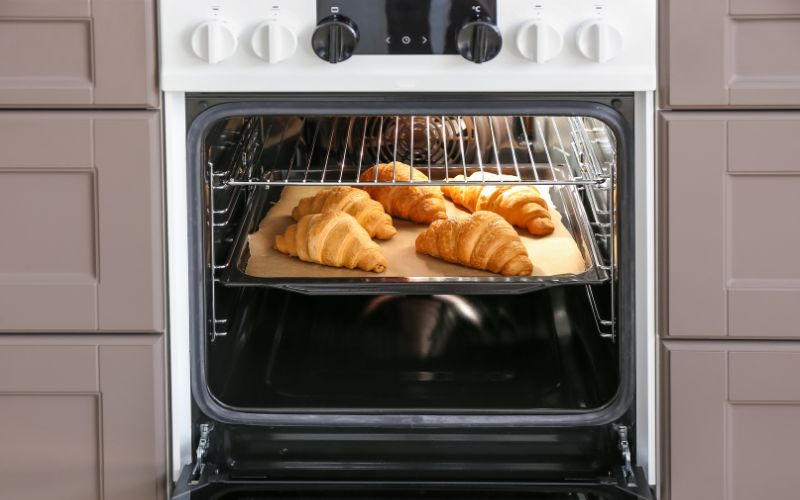
Up-front costs
Electric ovens tend to be cheaper to buy up-front, which is great if you’re trying to kit out your kitchen on a budget. Gotta love a pocket-friendly purchase!
Electric ovens – cons
Energy costs
Sooooo, this is where we have to point out the downside to our last pro, as although electric ovens are cheaper to buy, energy costs on average tend to be higher than gas. This all depends on where you live of course, but it’s important to check the energy costs in your local area before you go all in.
Pre-heating times
We’ve mentioned some pretty neat electric oven benefits so far, but as the old saying goes, all good things come to those who wait! And wait you shall, because electric ovens take time to get up to temperature before they start cooking your food. If patience isn’t your virtue, an electric oven is not your friend!
Gas ovens – pros
The chefs choice
While electric ovens have come a long way in recent times, you’ll often find the pros prefer to cook with gas for juicier and more succulent results. If it’s good enough for Gordon Ramsay and his pals, maybe it’s good enough for you too!
Hot and humid
Gas ovens produce more moisture for humid heat. If you regularly cook meat, then a gas oven should be right up your alley.
Quick to heat and cool
If you live life in the fast lane and waiting around for food is just not an option, a gas oven could be just the ticket. Unlike electric ovens, gas models are much quicker at getting up to temperature and coming back down again.
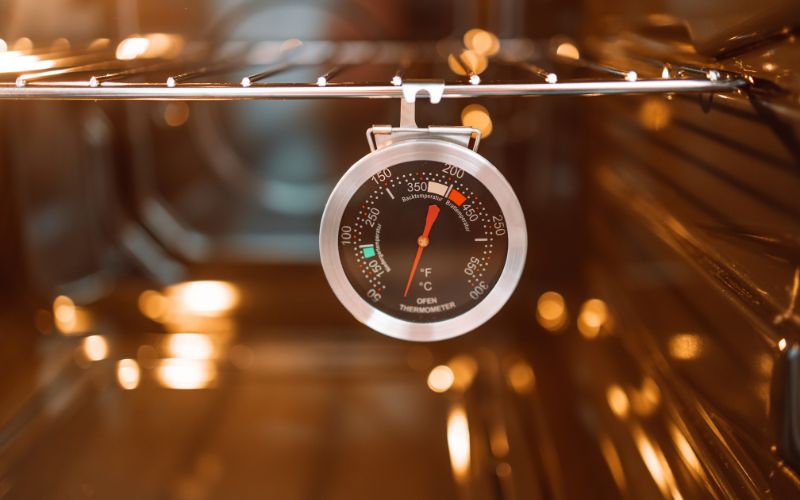
Cheaper to run
If you’ve read this far, it’s probably no surprise to hear that gas ovens are more cost-effective to run! Gas rates tend to be cheaper than electricity but as we mentioned above, this will all depend on where you live.
Gas ovens – cons
Tricky to tame the flame
As you can imagine, relying on an open flame to cook your food can come with some downsides, the main one being the lack of temperature control and the potential for uneven results. Yikes!
Safety first
It’s important to note that both gas and electric ovens come with lots of safety features to prevent the worst from happening. However, although unlikely, there’s no getting away from the risk of a gas leak. To keep you and your loved ones safe, always have a carbon monoxide detector near your gas appliances.
I know, I know, we’ve hardly whittled it down for you, but in all honesty, it all boils down to (cooking pun intended) personal preference and what’s important to you. So, whichever fuel source you choose or inherit, there are plenty of gas and electric oven benefits to get excited about. Happy cooking!
